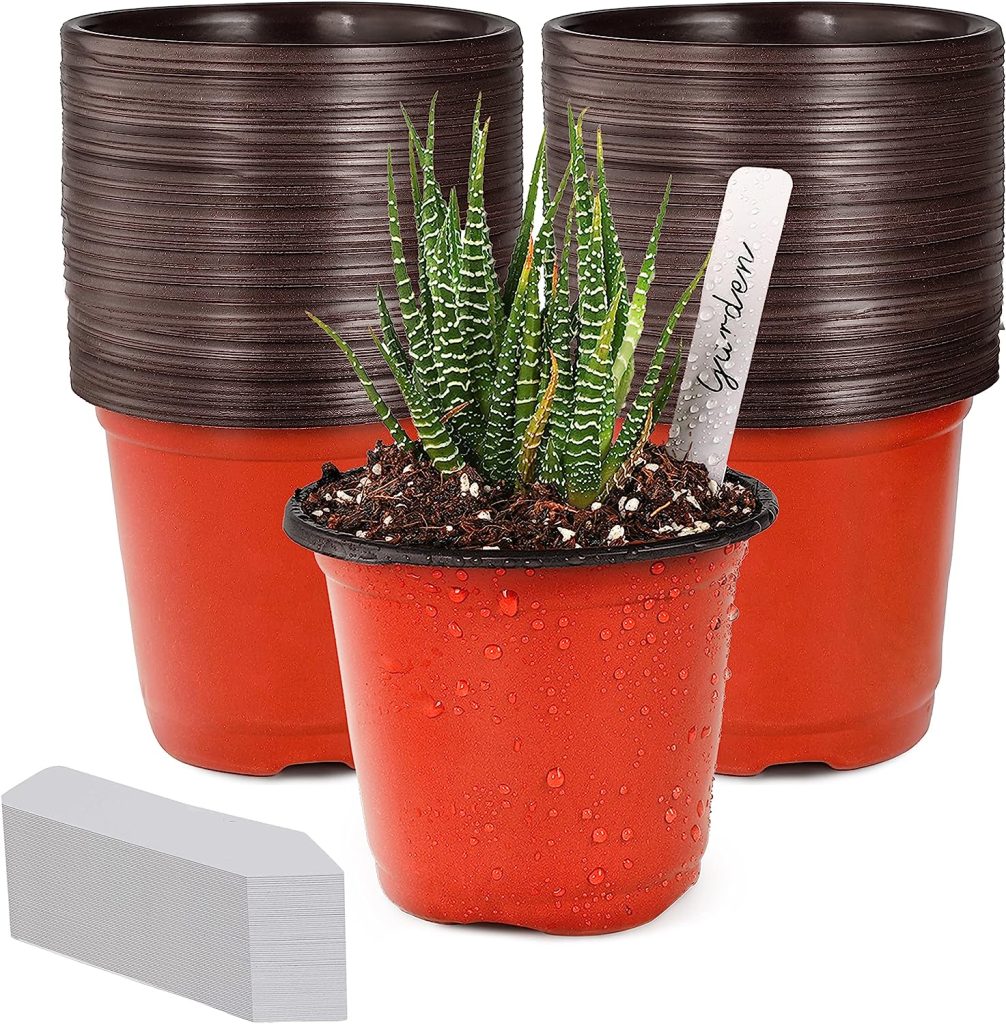Nursery Pots
*As an Amazon Associate, I earn from qualifying purchases. Please see our disclosure to learn more.
Nursery pots are containers used for growing plants, particularly in nurseries or for home gardening. These pots come in various sizes, shapes, and materials such as plastic, clay, ceramic, or biodegradable materials like peat or fiber.
Key Features
These pots are useful for starting seeds and growing small to medium-sized plants before transferring them to the ground or larger containers. They also provide a controlled environment for plant growth and make it easier to manage watering and fertilization.
A nursery pot typically has drainage holes at the bottom to allow excess water to escape, preventing root rot and waterlogging. Some variants also come with trays or saucers to catch excess water, preventing mess and damage to surfaces.
Types of Nursery Pots
Nursery pots come in various types and materials, each with its own advantages and ideal use cases. Here are some common types:
- Plastic Pots: These are the most common type. They are usually made of durable plastic materials such as polyethylene. They are lightweight, inexpensive, and come in various sizes and shapes.
- Biodegradable: These variants utilize materials such as peat, coconut coir, or biodegradable plastics. You can use these environmentally friendly pots for if you plan to directly transplant a plant to the ground.
- Grow Bags (Fabric Pots): These are made of breathable fabric materials such as geotextiles. They promote air pruning of roots, which can lead to healthier root systems and prevent root circling. Moreover, they are lightweight, portable, and allow for excellent drainage.
- Clay or Terra Cotta Pots: Made of baked clay, these pots are known for their porous nature. This allows for better aeration and moisture regulation of the soil. They are heavier than plastic pots and may require more frequent watering due to their porous nature.
- Cow Pots: Made from composted cow manure, these nursery pots are biodegradable and provide nutrients to the plants as they break down.

